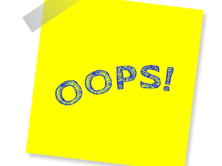
(Credit: Pexels.com)
The National Association for People Abused in Childhood, a UK charity that advocates for abuse survivors, has released guidelines advising journalists how to sensitively report on child abuse.
NAPAC sent iMediaEthics a quote from its chief executive Gabrielle Shaw, which was previously published by the Guardian, about the media’s coverage of child abuse.
“The issue of child abuse is being much more openly discussed in the media and callers to NAPAC’s telephone support line often talk about how media coverage affects them,” she said. “Sometimes people call because a media portrayal of child abuse upsets them by reminding them of their own childhood. Sometimes people are angered about inaccurate assumptions about the nature of these crimes.”
Shaw further explained why NAPAC hopes its guidelines will help reporting on child abuse:
“The media narrative around child abuse can play a major part in making survivors feel able to talk about the abuse they suffered. Good reporting can improve understanding about how child abuse happens, reduce the stigma facing survivors of child abuse, assist police investigations and enable us to learn how and why we as a society failed children in the past.”
The guidelines recommend what terminology journalists should use, suggesting news outlets don’t casually use words like “rent boy” “fling” or “kiddie porn” in reporting on sex abuse of children.
NAPAC recommended journalists ask sources how they want to be referred to — if they would rather be called a “survivor” or a “victim” or something else altogether. “Many adults who were abused as children prefer to be known as ‘survivors’ rather than ‘victims’ in recognition that they have survived what they have been through, and that they are not permanently stuck in that place of abuse as a ‘victim,'” the guidelines explain.
Phrases like “child porn, “kiddie porn,” “child pornography,” “affair,” fling,” “rent boy” and “child prostitute” shouldn’t be used, the guidelines explain, because they may minimize what happened or harm those affected.
“Child abuse” is a broad term,” NAPAC reminds. “When adults are violently raped or tortured, it is described as serious crime. If you are referring to child rape, call it rape rather than abuse. Refer to sexual assaults and sexual crimes.”
When it comes to sources, NAPAC reminds journalists that sources granted anonymity need to be fully protected and news outlets should be sure to not accidentally provide enough detail about the person or case where the person would be identified. Also, when covering court cases, NAPAC warns that journalists shouldn’t include too much detail about the alleged abuse.
NAPAC also provided tips for interviewing sources. For example, “quietly acknowledge the survivor’s feelings and emotional responses,” and “ask open questions” instead of “leading questions” or “assumptions.”
NAPAC emphasized the importance of accuracy, noting that false or sensational reporting doesn’t help. “Inaccurate or manipulative reporting may lead to survivors being portrayed in the media as unreliable,” NAPAC says.
Review the guidelines here.
Hat Tip: IPSO
UPDATED: 2/15/2016 12:00 PM With information from NAPAC





